#ancient greek monsters
Explore tagged Tumblr posts
Text
Greek monster myths (1)
Various mini-articles loosely translated from the French « Dictionary of Feminine Myths », under the direction of Pierre Brunel. (You could also translate the title as “Dictionary of Female Myths” – the idea being all the myths centered around women)

Article 1: Gorgô
[Note: this mini-article is distinct from the mini-article about “Gorgons”]
The appearance of Gorgô, at the end of the eleventh chant of the Odyssey, is meant to cause fright – not just to Odysseus himself who is just done with invoking the dead, but also to the audience hearing this rhapsody (the Phaeacians listening to Odysseus’ tale), and to the very listener of the Homeric poem. Gorgô forms the dominant peak of this “evocation of the dead” (nekuia), she is the “chlôron déos”, the “green fear”. Odysseus’ mother, Anticleia, just disappeared back again nto the Hades – the hero wishes to summon other shades, such as those of Theseus and of his former companion Pirithous, “but before them, here is that with hellish cries the uncountable tribes of the dead gathered”. And Odysseus adds: “I felt myself becoming green with fear at the thought that, from the depths of the Hades, the noble Persephone might sent us the head of Gorgô, this terrible monster…” (633-635). It is barely an apparition, it is the possibility of an appearance, but it is enough to terrorize the living.
Jean-Pierre Vernant, in his work “La Mort dans les yeux” (Death in the eyes), establishes the link which ties together Gorgô and Medusa. Because Gorgô is more than a singular unification of the three Gorgons: she is a superlative form of Medusa, she is what happens when her petrifying gaze survives beyond death. By studying the depictions of Gorgô in ancient statues, Vernant establishes two fundamental traits: the faciality, and the monstrosity. He explains that “interferences” take place “between the human and the bestial, associated and mixed in diverse ways”. Maybe Gorgô is, as Vernant suggests, “the dark face, the sinister reverse of the Great Goddess, of which Artemis will most notably be the heir”. But Gorgô is also placed in the function of watchful guardian of the world of the dead, a world forbidden to the living. The mask of Gorgô expresses the radical alterity of Death and the dead.

Article 2: The Graeae
Daughters of Keto and Phorkys (they are thus also called “The Phorcydes”), sisters of the Gorgons, these divinities of shadows, which were born as elderly women and doomed to share one eye and one tooth for all three, appear exclusively in the tale of Perseus and Medusa.
The most ancient mention of the Graeae comes from Hesiod’s Theogony, which only counts two of them and names them Pemphredo and Enyo (Enyo was also the name of a goddess of war within Homer’s Iliad). The third of the sisters appears within a fragment of the Athenian logographer Pherecyde: Deino (“The Dreadful”), later called Persis by Hyginus (in his “Preface to fables”). Other authors, like Ovid, prefer to stick with two Graeae. Hesiod makes a quite flattering portrait of them: he makes them elegant goddesses with a “beautiful face”, even though they were “white-haired (understand “having white hair due to old age”) since birth”. And while their very name means “old women”, the Antique iconography actually follows the Hesiodic model: the depictions of the sisters as disfigured by the effects of time are quite rare… At most the artists will just put a few wrinkles. These mysterious hybrids between youth and old age, virginal seduction and sinister ugliness, finds an echo within a few lines from Aeschylus “Prometheus bound”: “Three ancient maidens, with swan bodies, that share a single eye and a single tooth, and who never receive a look from the shinng sun or the crescent of the night.” Aeschylus had an entire tragedy written about them (Phorcydes) which was unfortunately lost – but Aristotle wrote about it in his “Poetics” and implies that the play insisted on their monstrous aspect, placing them within the legendary area known as “the gorgonian fields of Kisthene”, and closely associating them with their sisters, of which they form a reversed image. Indeed, the Gorgons have a very powerful eyesight which no mortal being can face, while the Graeae have an extreme form of blindness. This trinity of women, old by nature, can also be understood as the antithesis of the three Charites, the Graces which embodied eternal youth.
The Graeae seems to have only a role within the myth of Perseus. And, outside of a few details, this legend does not change much from Pherecyde to Ovid’s Metamorphoses, passing by Lycophron, Apollodorus’ Bibliotheca, and Hyginus’ Astronomy. In all those versions the Graeae are the jealous keeper of the secret path that leads to the Gorgons, and Perseus must steal their eye in order to obtain the knowledge needed to reach Medusa. However, Pherecyde did change an element: according to him the Graeae do not protect the path leading to the Gorgons, but rather the path leading to the nymphs that hold the magical items Perseus needs to fight Medusa.
Due to their limited presence in Greek mythology, the Graeae have quite a poor cultural posterity. In the 19th century Goethe will remember them: in his “Second Faust”, Mephistopheles appears under the guise of “Phorkyas”, a monster with only one eye and one tooth. In the world of paintings, Edward Burne-Jones, who created a true “Perseus cycle”, had a strong interest for them: he worked for a very long time on a painting of the Graeae. Their face is barely visible, but the cloth that wraps itself around their body is menacing ; they are within an arid desert, under a dark sky heavy with clouds – they perform a sinister dance, in a mockery of the Graces. Perseus comes to steal their eyes, and the grey color that invades all the nuances of the picture symbolizes the unique presence of those strange crones, both disquieting and pitiable.

Article 3: Echidna
Echidna, “the viper”, is according to Hesiod the daughter of Phorkys and Keto, themselves born of Pontos, the Sea, and Gaia, the Earth. Echidna’s sisters are female monsters like her: the Graeae, and the Gorgons. Hesiod describes her as having half of the body of a “fair-cheeked nymph”, while the rest of her body is the one of an enormous, big, cruel, spotted and terrible snake which “lies within the secret depths of the divine earth”. Echidna as such belongs to this large mythological family of snake-women, of which the most famous case in France is the fairy Mélusine. But unlike Mélusine, Echidna can never leave the snake-half of her body, and thus a better French heir would be Marcel Aymé’s depiction of the vouivre with her cohort of vipers.
Theodore de Banville, when he imagines Hesiod scolding him for sanitizing Classical mythology, makes of Echidna the symbol of the archaic mythology: he tells him that he is “making a toy out of the history of the gods” by depicting Love as “a sweet child, free of carnivorous appetites, ignored by the Furies and by bloody Echidna”.
Echidna precisely appears as a being led by an amorous desire within Herodotus’ tales, that he claims to have collected among the Greeks of Pontus Euxinus: as Herakles was sleeping, Echidna steals his horses away. She only agrees to give them back if he sleeps with her. When Herakles leaves her, she tells him that she will bear three sons from their union. He advises them to only keep with her one that would be able to bend a bow just like him, and to force the others to leave. She does that, and this favorite son is supposed to be the one that created the Scythian people. This meeting between Herakles and Echidna might be derived from the famous encounters between Herakles and three of Echidna’s other children: the Nemean Lion, the Hydra of Lerna, and Cerberus.
In Aeschylus, Orestes compares his mother, Clytemnestra, to “a horrible viper”. Sophocles has Creon call Ismene, which he believes to have helped Antigone, “a viper that slid in my house against my will to drink my blood”. These examples show a link between the Ancient metaphorical speech, and the mythological allusions. Indeed, only the context can allow us to determine if these authors meant “viper” as a common name, or as a proper name: as “Viper”, “Echidna”. But it confirms the idea that, in Ancient Greece, Echidna is a monster born of an archaic fear of the women, and embodying their supposed perfidy.
#greek mythology#graeae#gorgon#gorgo#medusa#echidna#greek monsters#female monsters#ancient greek monsters#greek myths
88 notes
·
View notes
Text

Sketch of Poseidon and Charybdis
while I finish coloring other things
#oc#original character#artists on tumblr#digital art#sketch#greek gods#greek myth art#greek mythology#greek myths#poseidon#charybdis#greek monsters#ancient greek mythology
5K notes
·
View notes
Text
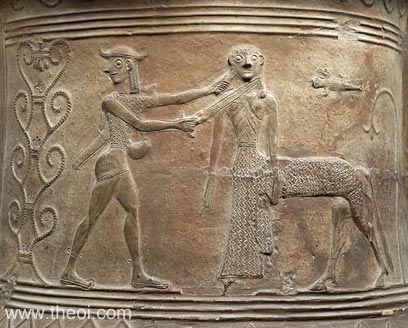
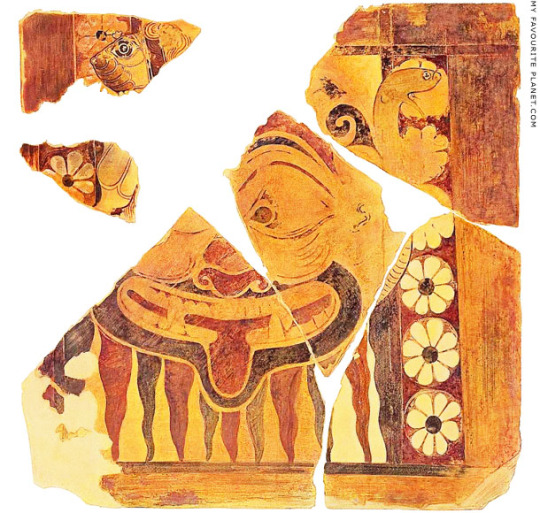
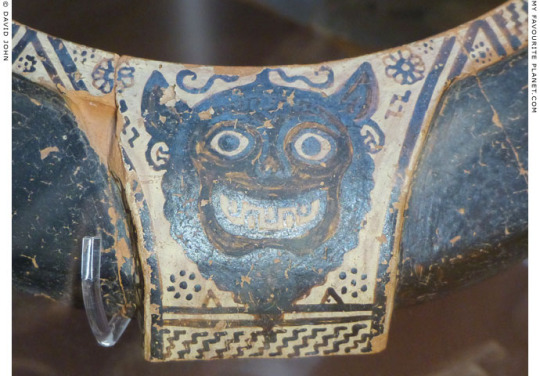
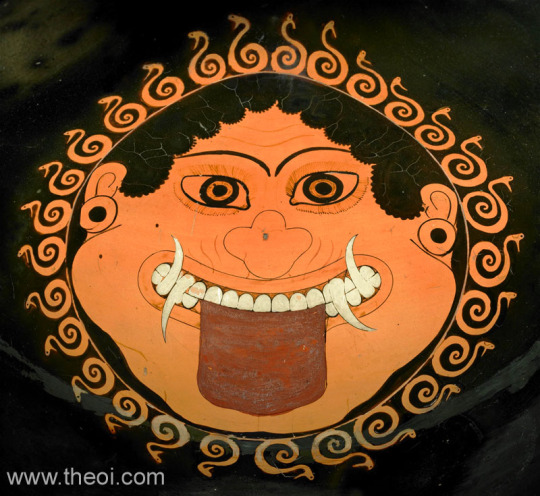
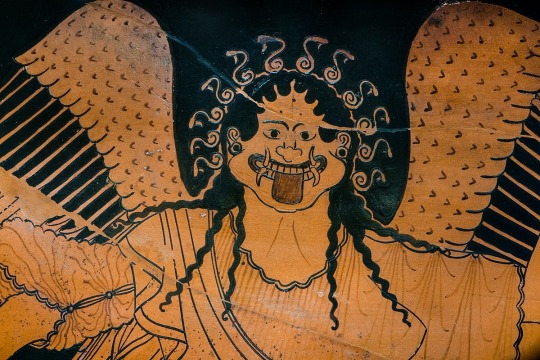
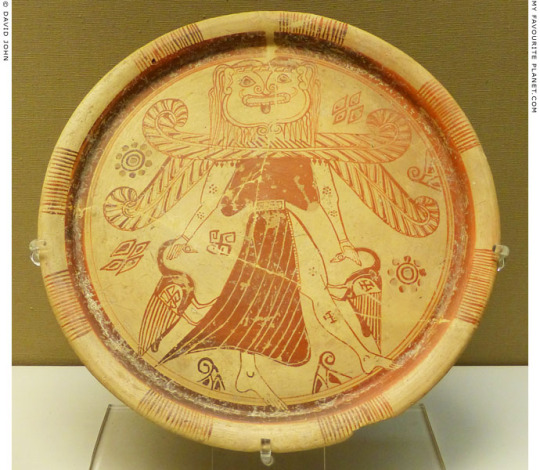
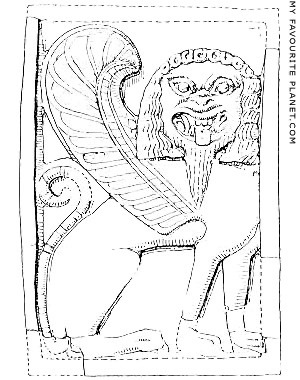
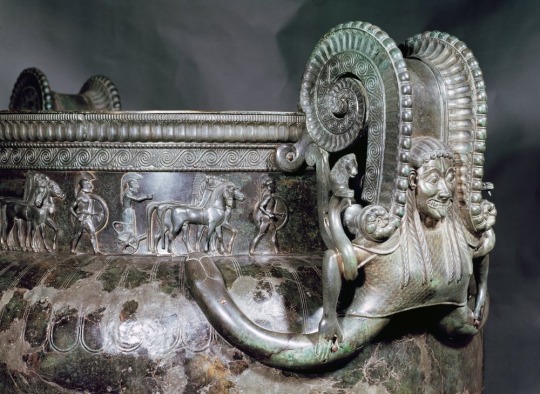
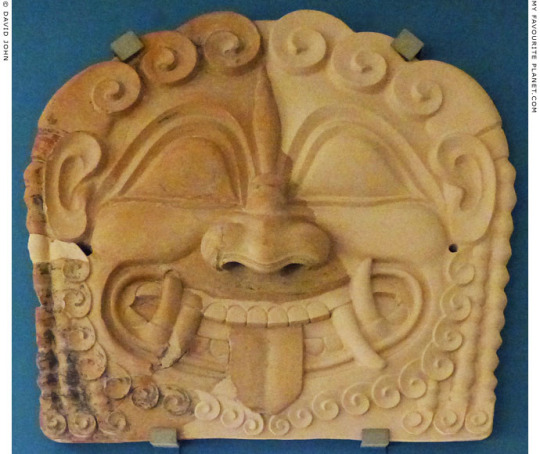
Medusa served so much cunt in older depictions with artists getting creative on her monstrosity yet ppl nowadays are so stuck up on depicting Medusa as a generic pretty snake lady that we are limiting ourselves from making unique and terrifying character designs.
#greek mythology#ancient greek mythology#greek pantheon#perseus and medusa#medusa#Gorgon#monster#monster woman#greek myths#greek monsters#Gorgons
1K notes
·
View notes
Text

Andromeda by Arthur Rackham
#arthur rackham#art#andromeda#cetus#greek mythology#mythological#dragon#dragons#serpent#serpents#sea#mythical creatures#monster#monsters#beasts#damsel in distress#classical antiquity#ancient greece#ancient greek#europe#european#sea monsters#sea dragons#sea serpents#folklore#mythology
3K notes
·
View notes
Text
I hate when people go "Hades isn't a bad guy!" Yet proceed to describe Ares as a raging berserker who drinks blood like its budweiser and has Athena's face on a dart board. Like, Ares has faced SO MUCH demonization it's on par with Hades
I swear some people cannot comprehend the fact the gods are multifaceted beings with both flaws and virtues
#“Ares is a monster!” they say as Ares in the background is busting a move at Harmonia and Cadmus' wedding#ares#ares god of war#hellenic polytheism#hellenic pagan#hellenism#ancient greek mythology#greek mythology
435 notes
·
View notes
Text
Cupid, giving advice to people in Ever After: Awww, it's okay if you chickened out of your confession. It's your choice when to do it, and if you think that the timing wasn't right, then follow your heart. Love is like-
Cupid, giving advice to people in Monster High: Kieran, you gràson. What do you mean you were afraid of Spelldon rejecting your confession? He's been dropping hints that he likes you all year long and Hades-forbid if I see another text from him about being obsessed with your accent in the Greek Freaks groupchat we have, I'm locking you both in a coffin til the next millennia-
#accd to a website i found gràson means smelly goat in ancient greek#c.a. cupid#ever after high#monster high#ca cupid#cupid#eah cupid#kieran valentine#spelldon cauldronello
1K notes
·
View notes
Text
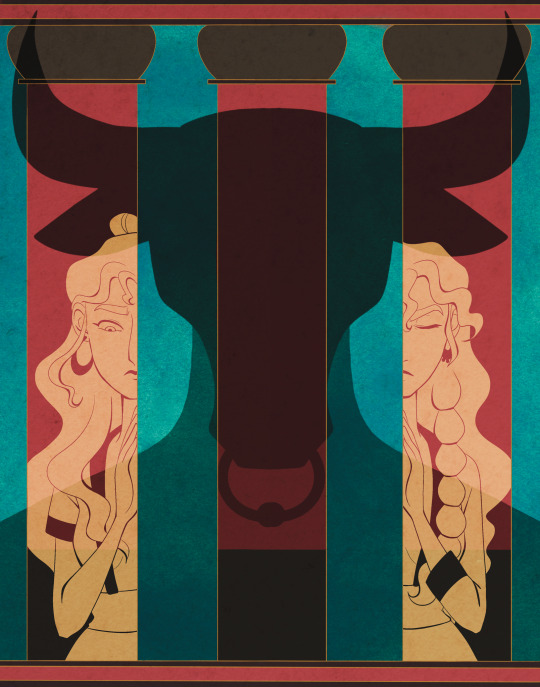
Ariadne, the Minotaur, and Phaedra—probably didn’t have the best sibling relationship, all things considered.
#artists on tumblr#digital illustration#illustration#all seeing murph art#art#art on tumblr#my art#ancient greece#Phaedra#Ariadne#the minotaur#ancient greek mythology#ancient mythology#greek mythology art#greek myth#mythology#myth#women of myth#minoan#Minoan mythology#women of legend#greek monsters
860 notes
·
View notes
Text

"We are going to need a bigger boat boys"
#art#digital art#my art#artists on tumblr#game art#procreate#greek mythology#amphitrite#goddess#poseidon#hippocampi#creature design#sea#boat#ancient greece#greek#history#fantasy#monster#fanart
164 notes
·
View notes
Text
i hope the liberal arts education never dies. everyone should get the chance to dabble in classics on their way to their science degree
#me when im a bio major but i took homeric greek for my language requirement and ancient roman history for fun#and africana studies and political geography and history of the american peoples before 1860 an english class about monsters#two art history classes so far#and loved every second
168 notes
·
View notes
Text
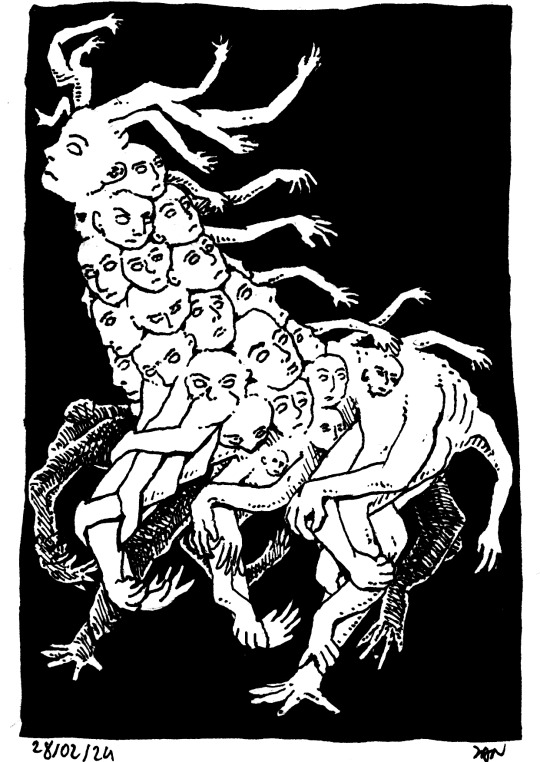
Hecatoncheir (artiodactylamorphe), the 240th Known One.
#they are BACK#i think they could work if i work more on the sketch before#but its scary af to come back to a project i failed not once but twice lol#Hecatoncheir#giant#greek mythology#ancient greece#chimera#monster#creature design#ink#bestiary#960#octem 120#aqva 4#Europe#Greece#homonculus#the Known Ones
512 notes
·
View notes
Text
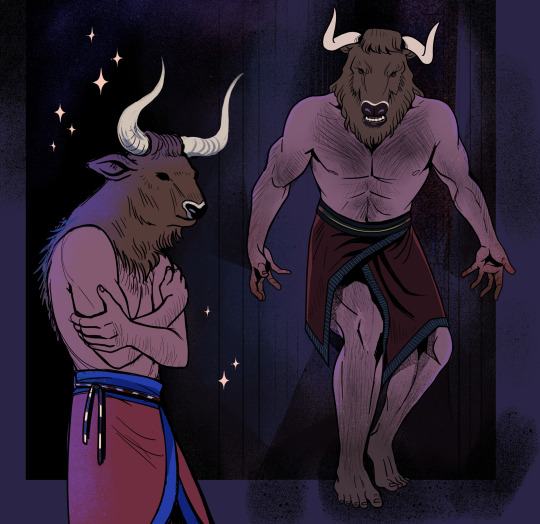
Classicstober Day 3: Asterion ✨ I did two sketches, so up both of them go.
#ClassicsTober23#ClassicsTober#art#ancient greek mythology#asterion#minotaur#cw partial nudity#very interesting guy#i tried to portray him not so much monster but still a formidable force
785 notes
·
View notes
Text
I will know that the world is starting to heal once I will see a fanfic/retelling where Astyanax was replaced by another child/an eidolon and survived all this time, then after coming to adulthood he will kill Odysseus, and then Neoptolemus for enslaving and raping his mother and will rescue Andromache before they two will finally be able to live a more peaceful life.
#“Odysseus is a monster because he cheated on his wife.” No bitch he did much worse things than that!#“Ancient greeks did Neoptolemus dirty.” They invented him.#Him killing Astyanax and then enslaving and raping Andromache is not something to ignore nor excuse.#And to all the people who say “Odysseus should've adopted Astyanax.”: You are annoying.#greek mythology#astyanax#andromache#neoptolemus#odysseus#greek mythology retelling#greek mythology fanfiction#ramblings
28 notes
·
View notes
Text
“Even if Perseus only killed Medusa to save Danaë he still values the life of one woman over another” fucking yes??? That’s his mom??? And Medusa is not only a monster but a stranger??? Danaë sacrificed so much and been through hell and if Perseus wasn’t willing to conquer the world for her there’d be something wrong with him.
#greek mythology#ancient greek mythology#greek pantheon#perseus#Danae#Danaë#Perseus and Medusa#Medusa#Gorgon#Gorgons#Greek monsters
548 notes
·
View notes
Text
I am genuinely really enjoying seeing people who have clearly never read the Odyssey before reacting to EPIC's Ithaca saga. I haven't listened to EPIC myself (yet) but people keep saying stuff like "Odyseeus built their palace around an olive tree he carved into his and Penelope's marriage bed that's so symbolic" and "He really just murdered all the suitors wouldn't that piss off their parents?" Which are observations and questions that the Odyssey makes incredibly blatantly clear as to the symbolism or the answer because it's a really old poem and subtlety wasn't really Homer's strong suit.
There's something really endearing about seeing people interact with the Odyssey through the same way the Ancient Greeks did - a bard singing the story of Odyseus' nostos.
(I gather the details have changed a little, but that's what happens with oral storytelling, and that's how the Odyssey got created in the first place)
Also as congratulations have my favourite ancient depiction of Odysseus surfing with two amphemorae having stolen Poseidon's trident, being sped along by Boreas, stark naked except for a cloak he's holding onto.
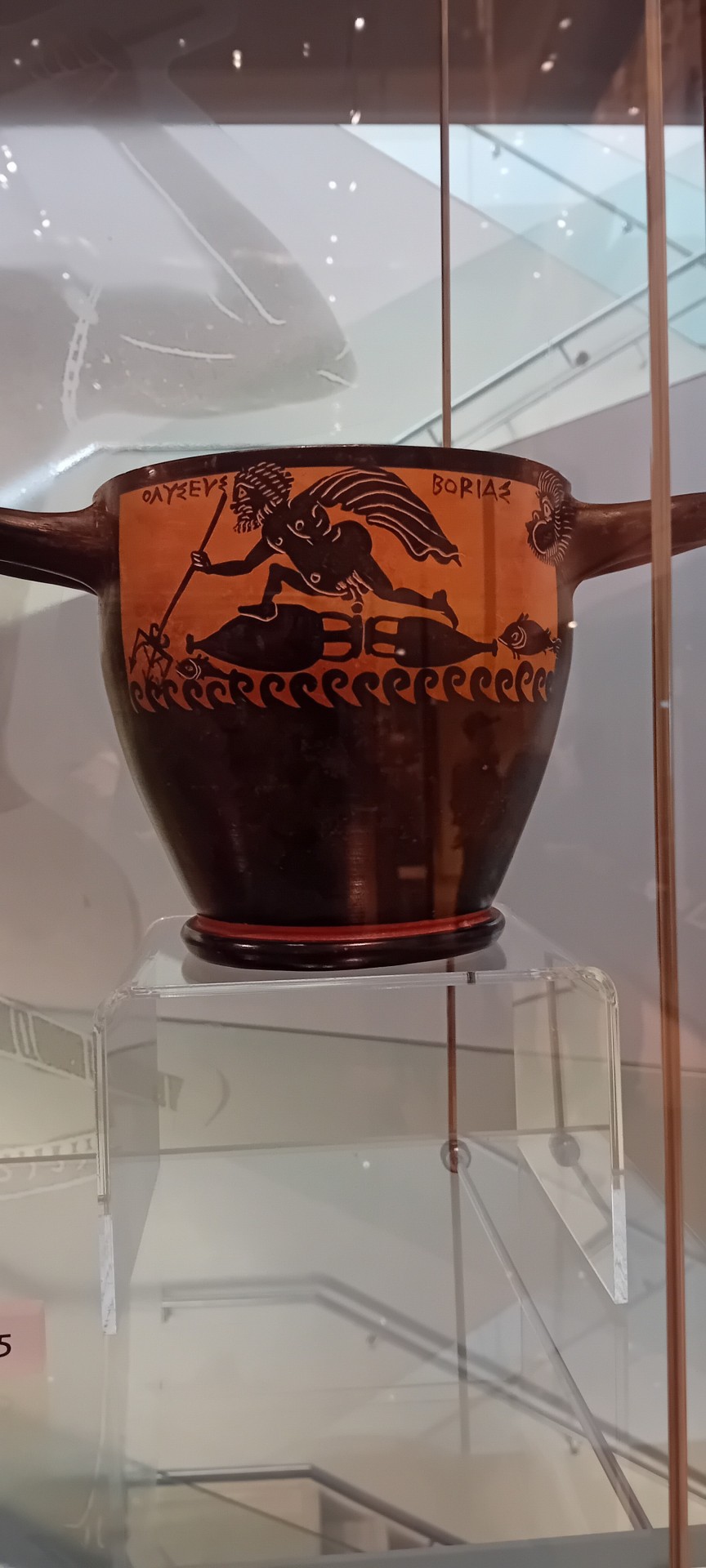
#epic the musical#epic the ithaca saga#in answer to the question “what about the suitors parents being pissed” what happens is they all storm the palace gates#odysseus and laertes go out to meet them#and athena appears and goes#“no. my boy has suffered enough to get here. go home and have new#better sons who arent creepy dicks#also re: oral storytelling#its facinating actually because the odyssey wasnt written by Homer he was just the guy who wrote it down#the story existed since at least 1450 BCE#(fall of troy)#and because we know the very basic rundown of what was happening at a) the Bronze Age collapse and Mycenaean Greece#(when the story is set and it first began circulating)#b) the Greek Dark Ages which werent all that dark they just forgot writing for a bit but did a lot of cultural shifting#and c) the Archaic period which is when Homer wrote it down#we can (roughly) figure out what parts of the Odyssey are probably the oldest#what may have been introduced during the Dark Ages to reflect that cultural shift away from Mycenaean civilisation and towards Archaic#and what was introduced in the Archaic period when Homer got ahold of it#which i think is amazing and facinating#and is (very loosely) what is happening with EPIC#(its not the same because modern people are not the cultural inheritors of a story of our relatively recent ancestors' war and returns)#but the changes being made to reflect the modern audience and fit our time better are#kinda#if it was like the changes made in Ancient Greece it would be like the mentioned places to have their modern names#and the monsters changed slightly to relfect current cultural anxieties which i dont think has happened with EPIC#fel free to corect me though because like i said i havent listened to it yet#the odyssey#homeric epics#tagamemnon#technically
51 notes
·
View notes
Text
Cupid, swirling around her sparkly pink drink as she talks: It took me fur-ever to learn all the fairy tales that my classmates had. And I'm sure there's boo-sands more I don't know!
Deuce, sitting on the same table as her and eating ambrosia-dipped treats: At least they only have one ending? That they're trying to break free from, I mean. I still can't wrap my mind around all the possible versions that my story could end up.
Manny, eating a spread of meat, cheese and fruit while occasionally sneaking a treat from Deuce's plate: Why'd your old man even decide to send you there? We're myths, not fairy tales.
Cupid, slamming her hands on the table to dramatize her point: Haven't you guys been listening to me? Like half of their stories end in tragedies. What's more Greek mythology than that?
#ever after high#eah#monster high#mh#c.a. cupid#ca cupid#cupid#deuce gorgon#manny taur#one day i will write the fic about the ancient greek kiddos in monster high#one day kfghdkfgjhdfg
151 notes
·
View notes
Text
ykw would be a crazy AU is if pre-Green Arrow Ollie lands on Themyscira as his life-changing stranded-on-an-island adventure
#oliver queen#diana of themyscira#simu's two cents#green arrow#wonder woman#ollie lands on themyscira and is fully doing the whole wilderness survival thing because most themsycirans don't go outside city walls#and there's like monsters from ancient greek myths hunting his pasty white ass down but rich boy ollie just thinks he's in Asia somewhere#until he stumbles upon diana ofc and then he can be taken like into the city#ollie still has to go through the character arc of learning that he was kind of a rich asshole but idk how that would work in this au#like themyscira is supposed to be a feminist utopia right?#maybe he accidentally stumbles upon it while they're in the middle of a war... or smth. and he honestly would probs just be a liability#i think him being a liability would make him more determined to become useful and maybe that's how he accidentally stumbles into his own#character development? like if diana is constantly protecting him that would be so emasculating for ollie and he might try to like. repay.#and he can learn archery while on the island! like even more so than before#IDK EITHER OLLIE OR DIANA ENOUGH TO WRITE THIS BUT THIS COULD BE A FUN IDEA IDK
51 notes
·
View notes